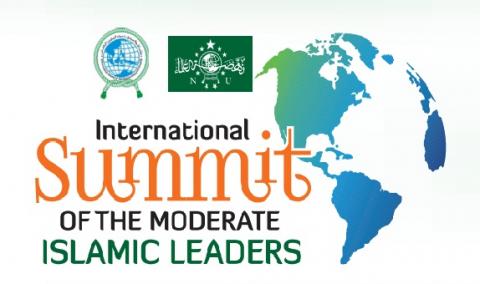Isomil as a means of diplomacy to reconcile conflicts in Islamic world
NU Online · Jumat, 6 Mei 2016 | 08:16 WIB
Jakarta, NU Online
The Indonesia's largest Muslim organization Nahdlatul Ulama (NU) has deeply concerned over he relentless conflicts in the Middle East and some Asian countries, such as Syria, Palestine, Afghanistan and the Philippines. As an initiative to reconcile the various conflicts, NU will hold the International Summit of the Moderate Islamic Leaders (Isomil) as a means of diplomacy aimed at soon dealing with the conflicts.
"Indonesia as a nation with the largest Muslim population in the world, as well as its position that is neutral in any international conflicts. NU also had experiences in resolving a number of conflicts within and outside the country, including Afghanistan," the Chairman of the Organizing Committee of Isomil, Imam Aziz told reporters here on Friday (6 / 5).
The turmoil of conflict in the Middle East, according to Imam, was due to radicalism which then spread throughout the world. Radicalism in the name of Islam, Imam said, would continue to grow and spread in various parts of the world.
"That is why Indonesia's active role in running the international diplomacy is expected by many parties. Therefore NU has initiated a meeting of leaders of the Islamic world under the auspices of Isomil. We hope that this meeting could result in both resolutions and agreements between Muslim countries to come together to end the conflict by first of all preventing the spread of radicalism," he said.
NU, Imam said, would encourage the active participation of Muslim scholars (ulema) and community leaders from the participating countries to develop moderate religious understanding and mobilize the global consolidation of the Muslim scholars and Muslims to initiate peace.
Meanwhile, the Chairman of the Lajnah Ta'lif wan Nasyr who is also the coordinator Isomil media, Juri Ardiantoro added that through this forum, NU and moderate Muslims were more challenged to affirm the correct and argumentative interpretation to reject any possible radical ideologies.
"Together with moderate Muslim scholars around the world, NU is required to clear it up, which interpretation that should be rejected and which one that should be developed while inviting the entire world to support the moderates interpretation and marginalize radicalism interpretation," he said.
NU experience in dealing with religious conflicts abroad, has been proven, including the establishment of an organization of NU Afghanistan (NUA) in 2014 that has now evolved and been established in 22 provinces in the country. The NUA chairman is now Fazal Ghani Kakar.
"NU in Afghanistan, has brought together more than 6000 local ulema and has taken part in easing the conflicts that were previously difficult to tackle in Afghanistan. Now if we look at reports about Afghanistan, instead of reporting war or conflict between tribes, what is now reported is the effort of the government to deal with terrorism and the attitude of Muslim scholars refusing radicalism," Juri said.
Earlier, on Wednesday (04/05), the NUA Chairman Fazal Ghani Kakar was invited by the Bogor chapter of NU at a discussion taking up issues on the dynamics of global Islam and the NU's role in Afghanistan.
During the discussion, Fazal admitted that he and the local scholars have adopted the principles and teachings of NU in Indonesia, after he visited and studied the NU ways of preaching in Indonesia. Even, NUA has also sent its students to study at Islamic boarding schools (pesantren) and NU universities in Jakarta.
"The NU presence in Afghanistan is expected to be an oasis in the middle of the desire of the Afghan people who love peace, and generally adhere to the teachings of Ahlussunah wal Jamaah," Fazal said.
He said the NU Afghanistan could imitate NU in Indonesia being considered to have become "the soul of the nation." He expected NU in Afghanistan to become a large organization that is respected for its important role in disseminating the messages of peace, solidarity and humanity. (Masdar)
Terpopuler
1
Khutbah Jumat: Ramadhan, Melatih Sabar, Memperkuat Syukur
2
Gerhana Bulan Total Bakal Terlihat di Seluruh Indonesia pada Selasa 3 Maret 2026, Dianjurkan Shalat Khusuf
3
Khutbah Jumat: Tiga Kebahagiaan Orang Puasa
4
Gus Yahya Sebut Kepergian Ketum Fatayat Margaret adalah Kehilangan Besar bagi Keluarga NU
5
Ali Khamenei Wafat dalam Serangan Israel-Amerika
6
Khutbah Jumat: 4 Cara Menghidupkan Malam Ramadhan dengan Ibadah
Terkini
Lihat Semua
















